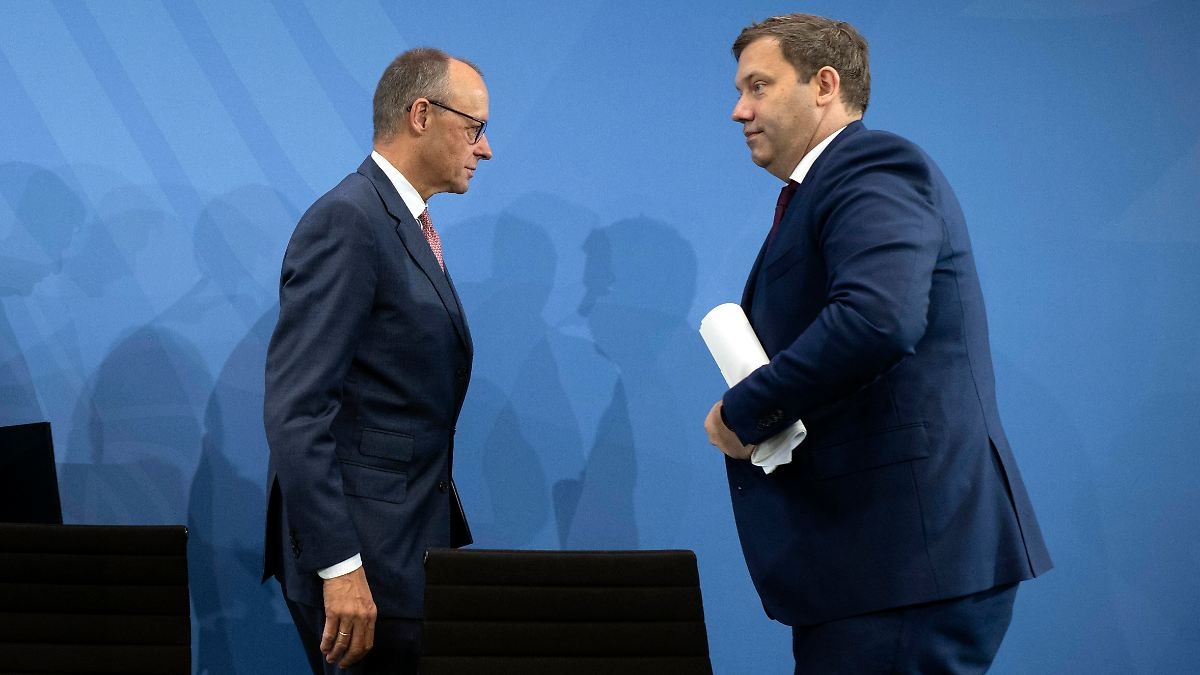SPD calls for fairer inheritance tax: make the rich more accountable

In the end, the party leaders themselves were fed up. Lars Klingbeil had already experienced during the federal election campaign that many workers felt they were being treated extremely unfairly compared to able-bodied recipients of the citizen's allowance – and blamed this primarily on the SPD. Co-party leader Bärbel Bas also wanted to finally put the issue to rest and introduced stricter measures in the middle of this month. However, she objected to the dictum of Chancellor Friedrich Merz (CDU) and CSU leader Markus Söder that the citizen's allowance was now a thing of the "past." The SPD is keen to maintain social justice as its core tenet.
And that's why the Social Democrats are now turning the tables – not just the left-wing Jusos (Young Socialists), but also the Seeheimer Circle from the right wing of the party, which is influential in the Bundestag parliamentary group and to which Federal Finance Minister Klingbeil also belongs. After months of debate about cuts to the citizen's income, which amounts to around €47 billion a year, the discussion should, for a change, be about what the rich should contribute with their €400 billion in annual inheritance.
Members of Parliament Parsa Marvi and Philipp Rottwilm have written a financial paper for the conservative SPD faction Seeheimer Kreise entitled "Justice Creates Strength – Guidelines for Tomorrow's Financial Policy," which has been made available to the RedaktionsNetzwerk (RND) Germany.

In it, they take a closer look at inheritance and gift taxes. Their figures could make an impression: The richest 10 percent of the population in Germany own two-thirds of all private wealth, while the poorer half of the population owns only 1.3 percent. This means that more than half of all private wealth no longer comes from personal contributions.

Around 400 billion euros are inherited or gifted annually, but not even a quarter of this is taxed. In 2023, only 9.2 billion euros in inheritance and gift tax was collected. At the same time, the cash-strapped state waived almost 8 billion euros in favor of corporate heirs due to exemptions. The average citizen rarely experiences the tax office waiving revenue.
In addition to the loss of revenue, the Seeheim residents complain about "generous special regulations" that protect wealth. This led to large assets with a total value of €260 billion being transferred completely tax-free between 2009 and 2020. This creates a system in which not only wealth is inherited and given away – but also inequality of opportunity, social division, and growing discontent.
Passage in the main motion for the Juso Congress in November.
"Things can't stay the way they are," Marvi tells the RND. Tax privileges for large corporate assets must be abolished or significantly restricted – while simultaneously protecting the assets and jobs within companies, he emphasizes. A reform of inheritance and gift taxes would then finance education, infrastructure, and social advancement. "Because a society in which wealth is earned rather than inherited is not only fairer – it also stays together," the paper states. Rottwilm also insists on a "right of all employees to company pension schemes," in which employers should participate.
In a socialist class-struggle vein, but with similar content, the Young Socialists (Jusos) are also calling for a reform of the inheritance tax. The 17-page key motion for the Jusos congress in Mannheim at the end of November, which was obtained by the RND, states: "The rich, and especially the super-rich, must finally pay their fair share." The reintroduction of the wealth tax and a reform of the inheritance tax are essential for this.

The RND newsletter from the government district. Every Thursday.
By subscribing to the newsletter, I agree to the advertising agreement .
"This contradiction between capital and labor threatens to destroy the democratic and social constitutional state," the motion reads. "Experiences of disappointment destroy trust and lead people to turn away from democracy." The answer to this development is "consistent class struggle." Domestically, the greatest threat to democracy comes from "the societal shift to the right" and the rise of the AfD. The success of the Left Party demonstrates that there is a need for left-wing politics.

The Jusos are harshly critical of their party: "This financial aristocracy, which has cemented itself over the past decades, is the result of neoliberal policies that have also been pursued by the SPD since the Agenda years." They are referring to Agenda 2010, with its deep cuts to the social system under Chancellor Gerhard Schröder, which have divided the SPD.
Juso leader Philipp Türmer is concerned about the future of his party, which is polling below its historically poor federal election result of 16.4 percent. He told the RND: "After half a year, this coalition is also idling around many issues instead of providing real answers to pressing questions of justice." The fundamental promises of a just society must be upheld. How does he view the SPD's development? "Extremely worrying."
rnd





